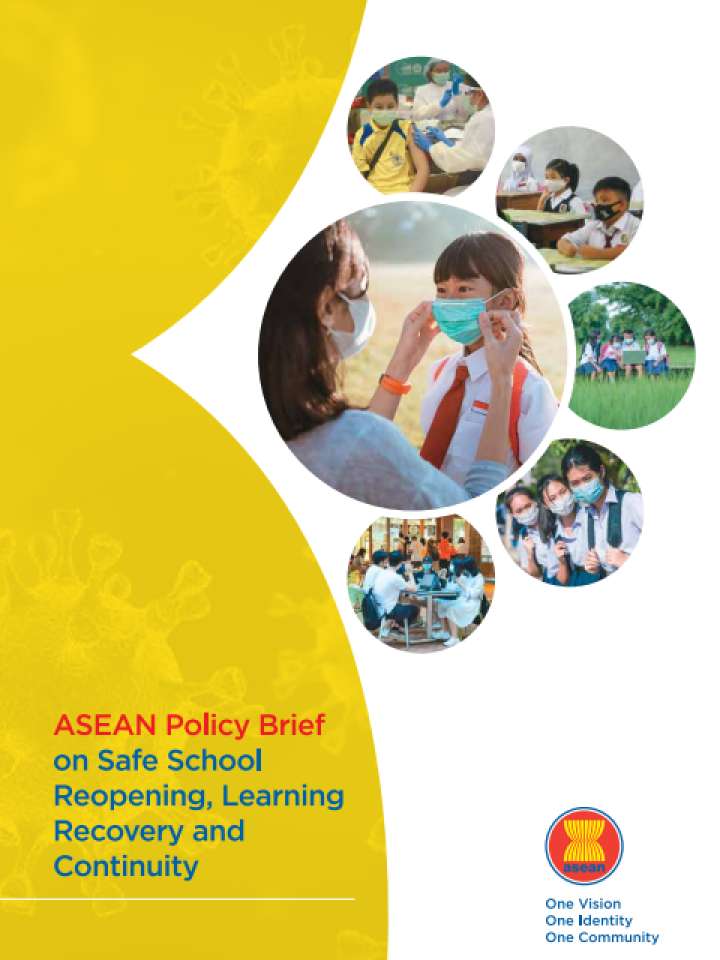ASEAN Policy Brief on Safe School Reopening, Learning Recovery and Continuity
Schools should remain open with adequate safety and surveillance measures in place. They should be the last to close and the first to reopen, particularly for younger learners. Therefore, the decision to close schools to control the COVID-19 pandemic should be only a last resort. The negative physical, mental, and educational impacts of school closures on children and the economic impact on society, more broadly, are too large to justify closures, except in the most severe pandemic situations.
This policy brief aims to inform national-level policy decisions in the Association of Southeast Asian Nations (ASEAN) around safe school reopening and operations, learning recovery, and continuity in the context of the COVID-19 pandemic as well as any future emergencies/disruptions. It intends to provide ministries of education of ASEAN Member States (AMS) with key strategies based on emerging global and regional evidence to reopen schools as an urgent priority and tackle various challenges of education disruptions. It also serves to strengthen the cross-sectoral work, particularly with ministries of health and social welfare, among others.
The paper has two objectives. First, it responds to the urgent needs of AMS for immediate strategies to ensure safe school reopening from pre-primary to secondary education, learning recovery, and continuity when disruptions occur. Second, it presents medium- to long-term strategies to cope with future shocks and disruptions by strengthening the education system resilience among AMS. To fulfil these two objectives, the following recommendations and seven strategies were formulated for the ministries of education of AMS.
